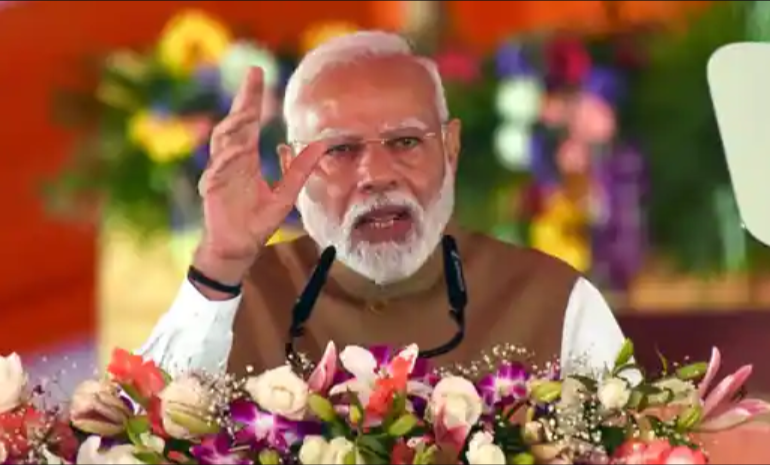
India Imposes Strict New Regulations on OCI Cardholders
India has introduced sweeping changes to regulations affecting Overseas Citizens of India (OCI) cardholders, now classifying them as foreign nationals and imposing stringent restrictions on their activities. According to a bulletin from the Home Ministry dated March 4, these changes will significantly impact travel, business, religious activities, and other engagements for the Indian diaspora.
OCI cardholders, who previously enjoyed privileges akin to Indian citizens, are now required to obtain special permits for various activities, including travel to certain restricted areas such as parts of Jammu & Kashmir, Arunachal Pradesh, and other northeastern states. This marks a stark shift from the previously lenient regulations that facilitated participation in India’s social and economic landscape.
The Home Ministry’s statement clarified that “the OCI Cardholder (including a PIO cardholder) is a foreign national holding a passport of a foreign country and is not a citizen of India,” effectively redefining their legal status in the country. This change sets them apart from Indian citizens, which has raised concerns among the diaspora.
George Abraham, vice chair of the Indian Overseas Congress, expressed disappointment, stating, “This is really a setback for OCI cardholders and the Indian diaspora. We felt we were moving toward dual citizenship, but now the government treats us like foreigners.”
The new regulations mandate that OCI cardholders secure special permission for activities such as missionary work, journalism, and certain religious functions, especially those linked to promoting a Muslim agenda, referred to as “Tabligh.” Access to restricted areas and mountaineering activities also now require formal government approval.
These restricted regions include Arunachal Pradesh, parts of Himachal Pradesh, and sections of Jammu & Kashmir, Manipur, Mizoram, Sikkim, Nagaland, along with parts of Rajasthan and Uttarakhand. As a result, areas with geopolitical sensitivities will be largely inaccessible unless explicit permission is granted.
In addition, new rules restrict inter-country adoptions by OCI cardholders and impose stricter criteria for obtaining higher education in India. OCI cardholders residing in India are required to report any changes in their residential address or occupation to the relevant authorities.
However, the Indian government did offer some minor concessions, such as aligning the entry fees for national parks and historical sites with those charged to Indian citizens. Nevertheless, these concessions are viewed as insufficient compared to the substantial restrictions imposed.
Thomas Abraham, chairman of the Global Organization of People of Indian Origin, voiced concerns about the adverse effects on the business community. “The regulations are burdensome for OCI cardholders wishing to do business in India,” he noted, highlighting the increased bureaucratic hurdles now faced by the diaspora.
The regulations could also complicate the real estate sector, which has seen significant investment from the diaspora. Previously, OCI cardholders could easily buy and sell property, but now they must obtain special permission from the Reserve Bank of India for any transactions. Furthermore, foreign nationals, including OCI holders, remain prohibited from purchasing agricultural land.
Abraham warned, “This sends a negative message. It does not encourage the Indian diaspora to engage with India’s development.” He also criticized the restrictions on religious freedoms, stating that attending religious services could lead to accusations of unauthorized missionary activities.
The new rules raise concerns about press freedom as well. “If you write an article critical of India, you may never be allowed to return,” Abraham pointed out, especially in light of the international scrutiny surrounding India’s political climate.
These regulations have led to speculation that they are part of a broader agenda under Prime Minister Narendra Modi’s administration, reflecting the influence of the Rashtriya Swayamsevak Sangh (RSS), a right-wing Hindu nationalist organization. Abraham asserted, “This government is not upholding the values of the Indian constitution.”
Business leaders within the Indian American community have also expressed apprehension, fearing that the complex bureaucracy for obtaining permits could deter diaspora engagement. Concerns were raised regarding regulations requiring foreign nationals to disclose their research findings to the Indian government, potentially giving competitors access to sensitive information.
As these new regulations take effect, the Indian government faces mounting backlash from the diaspora, particularly those with longstanding ties to India. The reclassification of OCI cardholders as foreign nationals and the accompanying restrictions may significantly hinder their ability to engage economically, socially, and culturally with their homeland. The long-term impact of these changes remains uncertain, but many within the Indian diaspora feel the government is moving in a troubling direction.


